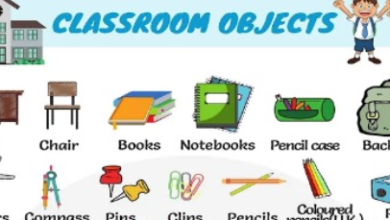Teaching Your Child About Credit: When to Start
Talking to your children about money is not easy. These conversations are often full of abstract concepts surrounding money, ones that are not easy to comprehend for kids.
However, teaching your child about credit specifically often comes in as an additionally complex task. This is not to say that you should avoid approaching this matter, but it is to say that you, as a parent, have the option to pre-plan how you want to tackle this topic best.
Luckily for parents worldwide, there is a massive amount of tools, apps, and websites to lean on for both experience and advice. All of these have great potential in aiding you to deliver the knowledge in the easiest way possible and for your child to absorb it without any trouble.
These developments in technology go hand in hand with the incredibly high paste of life parents are experiencing. If you are looking for the best way to jump in on this or wondering if kids should learn about credit, you’ve come to the right spot. This article is here to help to learn all about teen debit cards.
Table of Contents
Why parents and kids should have conversations about money
Substantive evidence demonstrates that kids start adapting to their surrounding financial behavior already by the age of seven. While this might seem like a shockingly low age, it is important to keep in mind that kids’ brains are like sponges, often mimicking things they see.
Both kids and parents can get easily preoccupied with everyday matters. However, keep in mind that good personal financial policies can make it or break it when it comes to your kids’ future. After all, we all know that kids grow up too fast. So, why not start immediately?
Don’t take it the wrong way, we’re not suggesting you talk to your kids about financial matters right this second or without a plan. We are also not saying that you should approach these topics from an adult perspective, as your kids will probably not fully grasp them.
What we are saying is to encourage your children’s knowledge about the cases of financial ups and downs, basic concepts, and financial responsibility. That’s good enough of a start.
Teaching kids all about credit
Not teaching your kids about credit leaves your children in the dark. With something as big and as important as finance, you want to avoid this happening. Depending on the age of your kids, you will either start by talking about the fundamentals of credit or more complex things like credit scores, credit reports, and similar aspects.
First of all, develop a way you want to go around this. For example, start by explaining how it is that credit cards even work and what the good and bad ways of using them are.
It is especially important to convey that having a piece of plastic that is always accessible does not mean that money is also always accessible. This means talking to them about priorities, wants, and needs, and teaching them to differentiate one from the other.
Next, you will want to talk to them about what makes up a credit score. Introduce them to the fact that previous spendings have a significant impact on your future financial possibilities.
You will talk about loans, debts, opened accounts, possible plans and troubles, and more. Teach them where to look for advice in case they, later in life, get into some financial difficulties. Provide a safety net. Some even suggest taking your teaching to real life and giving your kids a small loan they will have to pay back in time. The way you want to
How the internet can help you raise a financially literate child
Given that kids are generally great at technology, as well as visual learners, you might want to consider diving into one of the kid-friendly financial apps on the market. Take BusyKid as an example – it provides your kid with the freedom to spend, save, and invest, and it gives you, the parent, an opportunity to give them a safe and reputable learning environment.
Be brave to venture out and use most of the easily available tools, such as mobile devices, tablets, and others. Most of all, do not forget that your child will need theory and practice. Even more than that, do not forget they will need understanding and patience.







